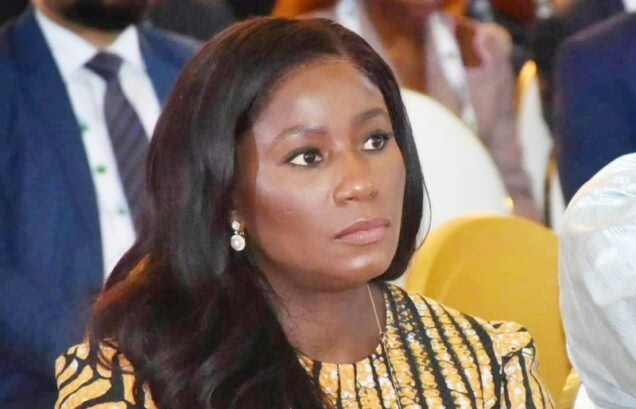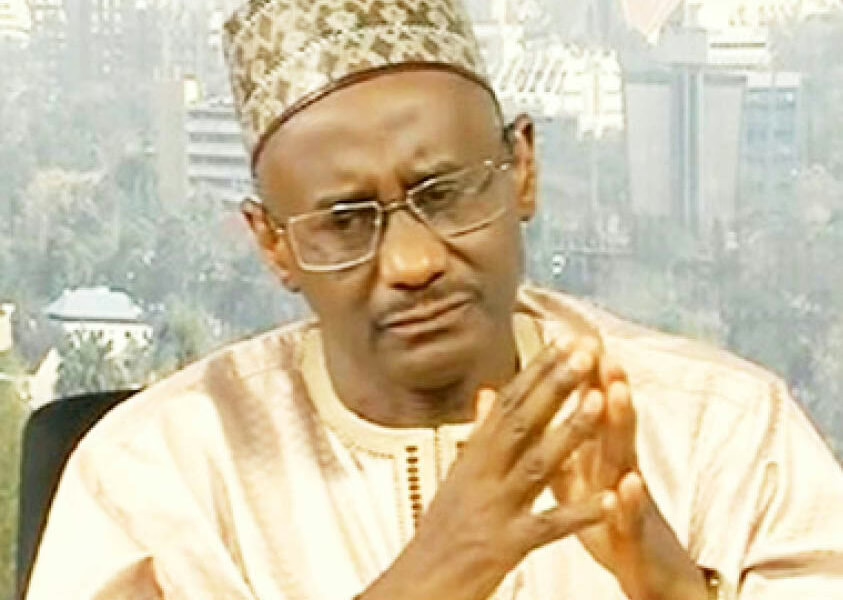By Josfyn Uba
When Stephanie Agbaje, 48, was pregnant with her first child, like any other mother-to-be, she looked forward to a beautiful and fulfilling motherhood with a healthy baby but that was not to be. Her dreams were shattered when she found out during the child’s first year that she had sickle cell anemia.


Although the Agbajes’ hemoglobin belongs to the AS category, they were so madly in love that they did not see the need to check their genotypes. Today, their 23-year-old daughter, Marvelous, a sickle cell carrier, is living amid pains, crises and stigma.
From the personal experience of raising a child with severe health difficulties and regrets, Stephanie developed a passion to help other families trapped in the same boat. Her charity organisation, Marvel Sickle Cell Foundation, has been in the forefront of advocacy for 17 years, educating people on everything about this disease.
The world marked World Sickle Cell Day on June 19, 2023.
Daily Sun sat with the mother of three, who recalled some of her unpleasant experiences.
When you found out that your child was a sickle cell carrier, what was your reaction?
Reality dawned on me when the pregnancy test came out positive. I did a lot of fasting and praying, expecting a miracle after birth, but, six weeks after she was born, a blood test confirmed her hemoglobin to be SS. I was completely devastated. I felt like heaven had forsaken me. I found out within her first year. Her condition was very serious and her major complication was acute chest syndrome, which occurred during a crisis attack. Whenever it started, she would feel like her chest would divide into two. I used to watch her groan in pain and I wished I could help her bear some of the pain. Unfortunately, I couldn’t. I still remember how I cried and questioned God, why my little girl had to go through it.
How old is she and what has been the challenge of coping with this situation?
She is 23 years old. She is a survivor. She is a graduate of criminology from the National Open University, Abeokuta campus. It’s been a bittersweet roller-coaster of emotions. The peak of her crisis were in her early and formative years when we were always in and out of the hospital, bills to pay and issues here and there. The most recent challenge we had was when she couldn’t attend her convocation earlier this year because she was in hospital when her mates were jubilating on their awarded degree.
Most parents think that the ailment is foisted on their child by evil forces, spirits or a curse. What should stakeholders do to change this narrative?
One of the challenges sickle cell carriers face is stigmatization from family and friends. Most African parents believe they are witches, or evil children sent to torment their families. We shall continue to educate people to let them know the disease is not infectious. They are not ‘Abiku’ or ‘Ogbanje’. They are just victims of other people’s ignorance. I heard about a man who chased his wife and child away. I have also seen some fathers who accused their wives of getting such children from water spirits. A mother once asked me, “Why does my child fall ill just after I have collected my monthly salary?”
I know it hurts to work throughout the month and use the salary to buy drugs for a sick child. The blood of a sickle cell carrier breaks down every 28 days, unlike other genotypes that break down every 120 days. That is why sickle cell patients always fall sick towards the end of the month. We can only keep educating them. Sensitization programmes are important to change the narrative. There are no evil forces anywhere. Their problem is purely science and genetics. We should pay more attention to our biological compositions like genotype, so we can enjoy a healthy life.
What was your family’s reaction towards you in this regard?
My family deserted me and told me that they have never had a child with such health challenges in their lineage. Even someone once asked me why I was wasting my time and money on a child who would die anyway. I told her that everyone’s life was in God’s hands. Moreover, even healthy people die every day. So, why should anyone try to taunt me by saying my daughter would die?
Why should intending couples care about their blood group and genotypes?
They should care because they deserve to have a happy home and healthy children. No child should live in pains and health restrictions for the rest of her life.They should care because it is their civic responsibility to consider the society in whatever decision they take because, the moment a child is born, he/she becomes a member of the larger society and responsibility of the society, whether we like to it or not. Society deserves to be sickle cell-free.
Gone are those days when our parents got married without performing the necessary medical screening. I would advise every couple to check their genotype before getting married. Go to hospital and be sure that both of you are compatible. Many marriages have broken up today because of this issue, and many children are suffering because of the mistakes of their parents. So, don’t take that risk. Also, if you have a child or know anyone suffering from sickle cell disease, don’t stigmatize them. While they are still alive, please, give them a reason to be happy.
In the cause of your advocacy, what is your driving force?
It is my daughter’s health status, because I can imagine if I didn’t know how to go about it or what to do, if I tell you what it takes to treat sickle cell anemia, you would marvel. So I can imagine, if I didn’t go for genetic counselling, what would it have been like? My drive is the desire to see sickle cell patients live a near-normal, pain-free life, to create awareness to ensure that the statistics of children born with sickle reduces even if it can’t be completely eradicated. So, I go to radio stations, social media and send messages across, telling them to check their genotypes before marriage. I do not see it as a death sentence. The society sees it that way and pushes the narrative to them. People with sickle cell disease want to live and be happy like normal people but the society reminds them of their predicament.
The health sector has failed them, Family and friends are quick to project to them that they are burdens. Employers do not want to engage them. Nobody wants to give them a chance to live.
In the 17 years of running this NGO, have you had any ugly experience, like a court case, you may want to share?
I had that with a girl whose mother-in-law called off the wedding three weeks to her wedding because she found out that the girl was a sickle cell patient. That was not my problem. My issue was that the girl was already two months pregnant. We went to court and won the case.
In 2016, the Nigerian Sickle Cell Foundation pushed for a health policy bill for patients. What impact do you think it will have on them if it eventually sails through?
The bill will go a long way in helping people with sickle cell disease. Nigeria would be able to carry out research and formulate strategies on how to manage sickle cell anemia and carriers.
What did your organization do to commemorate this year’s World Sickle Cell Day?
We had various activities. We had our usual monthly meeting where we gave out free medication. We had an awareness walk in the rural areas of Mowe, Ogun State, and joined the sickle cell international community in a 24 hours virtual celebration.











